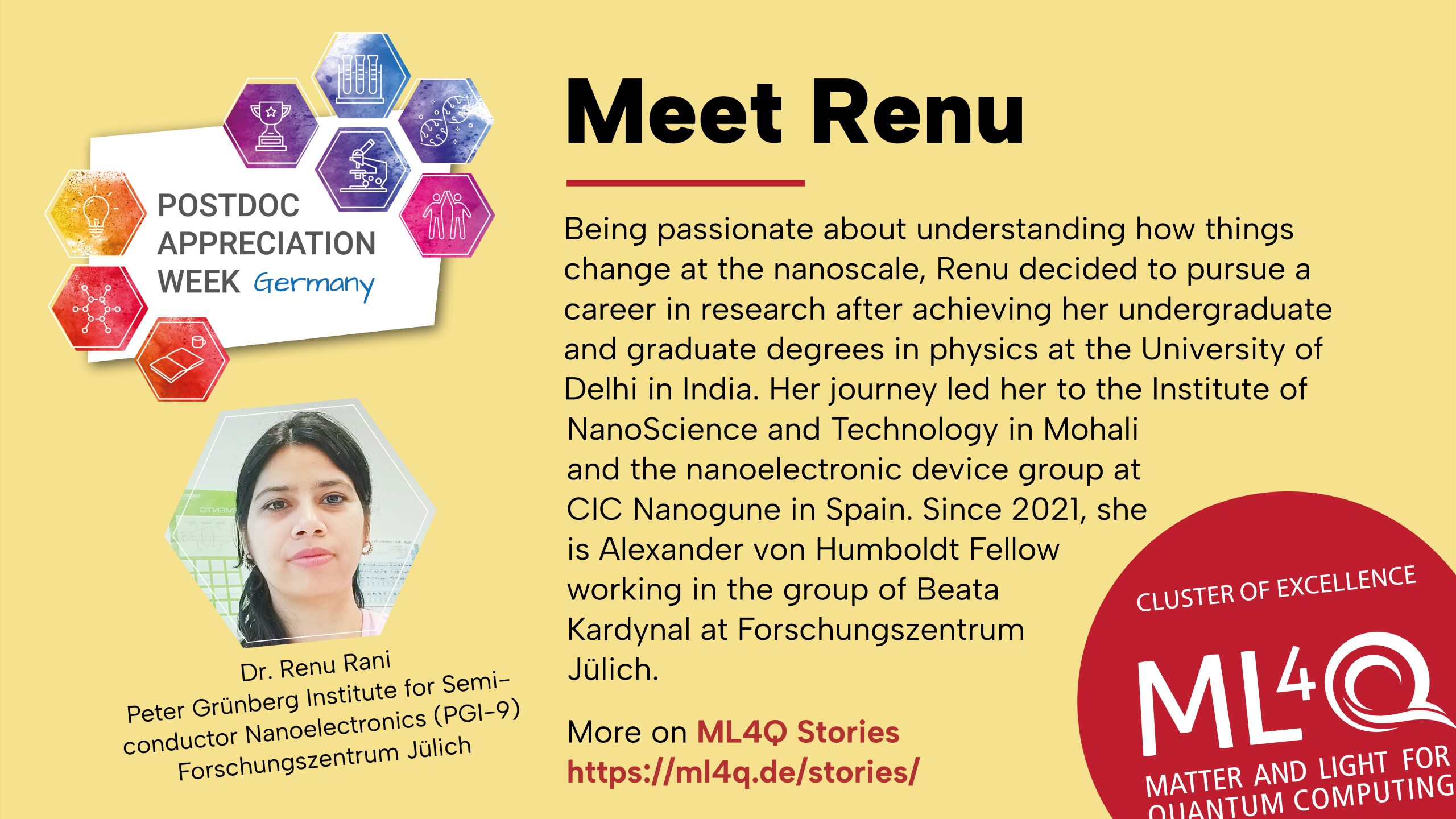It’s Postdoc Appreciation Week!
This week the global scientific community celebrates the Postdoc Appreciation Week (PAW) which was started in 2009 in the US by the National Postdoctoral Association to recognize the significant contributions postdocs and researchers make towards research and academic life in general. The PAW is also widely celebrated in the UK and Ireland and since 2022 also in Germany. The Research and Innovation Services of the Leibniz University of Hannover (LUH) teamed up with the Munich Postdoc Network (particularly Helmholtz Munich and the Max Planck Institute of Biochemistry) to establish this initiative in Germany. This year the PAW Germany coordination team invited researchers and research institutions, postdoc coordinators and research administrators all over Germany to join in creating a special program, events and a social media campaign to honor the incredible work of postdocs!
ML4Q took the chance to feature and recognize the impressive achievements of postdocs who are associated to the cluster. During the week, single postdocs and their profiles will be published on the cluster’s blog ML4Q Stories. Today we invite you to meet Dr. Renu Rani, postdoc in the research group of Prof. Beata Kardynal from the Peter Grünberg Institute of Semiconductor Nanoelectronics (PGI-9) at Forschungszentrum Jülich.
Renu, how would you describe your career path leading to your current position?
I embarked on my academic journey at the University of Delhi in India, where I pursued both my undergraduate and graduate degrees in physics. During my master’s program, I became familiar with the subject of nanoscale physics and the nanomaterials lab. This exposure kindled my passion for understanding how things change at the nanoscale. Driven by this curiosity, I made the decision to pursue a career in research. Consequently, in 2015, I enrolled in the PhD program at the Institute of NanoScience and Technology in Mohali, India. During my doctoral studies, I established an approach for controlled nanostructuring of 2D materials and explored its diverse applications in areas such as SERS sensing and catalysis. After completing my Ph.D., I decided to seek postdoc positions in Europe to broaden my horizons, acquire new knowledge, and gain exposure to diverse research environments. In 2020, I commenced my first postdoctoral position in the nanoelectronic device group, led by Prof. Luis Hueso at CIC Nanogune, Spain. However, my academic journey took an exciting turn when I got the AvH Humboldt fellowship just three months later, stimulating me to join Prof. Beata’s group at Forschungszentrum Jülich in 2021.
What are you currently working on and what other research areas would you like to discover?
In my current role, I am working on investigating single photon emitters in hexagonal boron nitride (hBN) through an ultra-low energy ion implantation technique. We are investigating the specific defect types responsible for single photon emissions in hBN by low-energy ion implantation to understand the origin of these emissions. We are exploring to generate stable single photon emitters in hBN operational at room temperature and also aiming to create spin qubit emitters in hBN.
Do you have a favorite scientist?
While it’s difficult to single out one favorite scientist, given the tremendous contributions of countless scientists, I hold a deep appreciation for the achievements of women scientists. Their dedication and passion have consistently inspired me to strive for excellence in my own research endeavours. Among these remarkable individuals, Maria Salomea Skłodowska-Curie stands out as a true icon, embodying unwavering commitment and pioneering spirit in the pursuit of scientific knowledge.
Name a discovery you wished you were part of!
One discovery I’d like to be a part of is Nikola Tesla’s inventions, especially his invention of alternating current generation.
What is your most enjoyable thing about being a PostDoc in academia?
The most gratifying aspect of my role as a PostDoc in academia is the constant evolution of my thought process. I enjoy conversing and exchanging thoughts with others since it excites me to think from other aspects and helps me to see things from new perspectives.
And what is the most tedious thing about being a PostDoc in academia?
Pressure to plan for the future, along with the daunting task of publishing papers and research proposals. It is time-consuming and mentally taxing.
What comes next?
Not sure, trying to embrace the flow of opportunities and challenges that academic research brings.
Guo-Yi’s latest paper
Interested in more career stories from our cluster?
Have a look at other stories!
